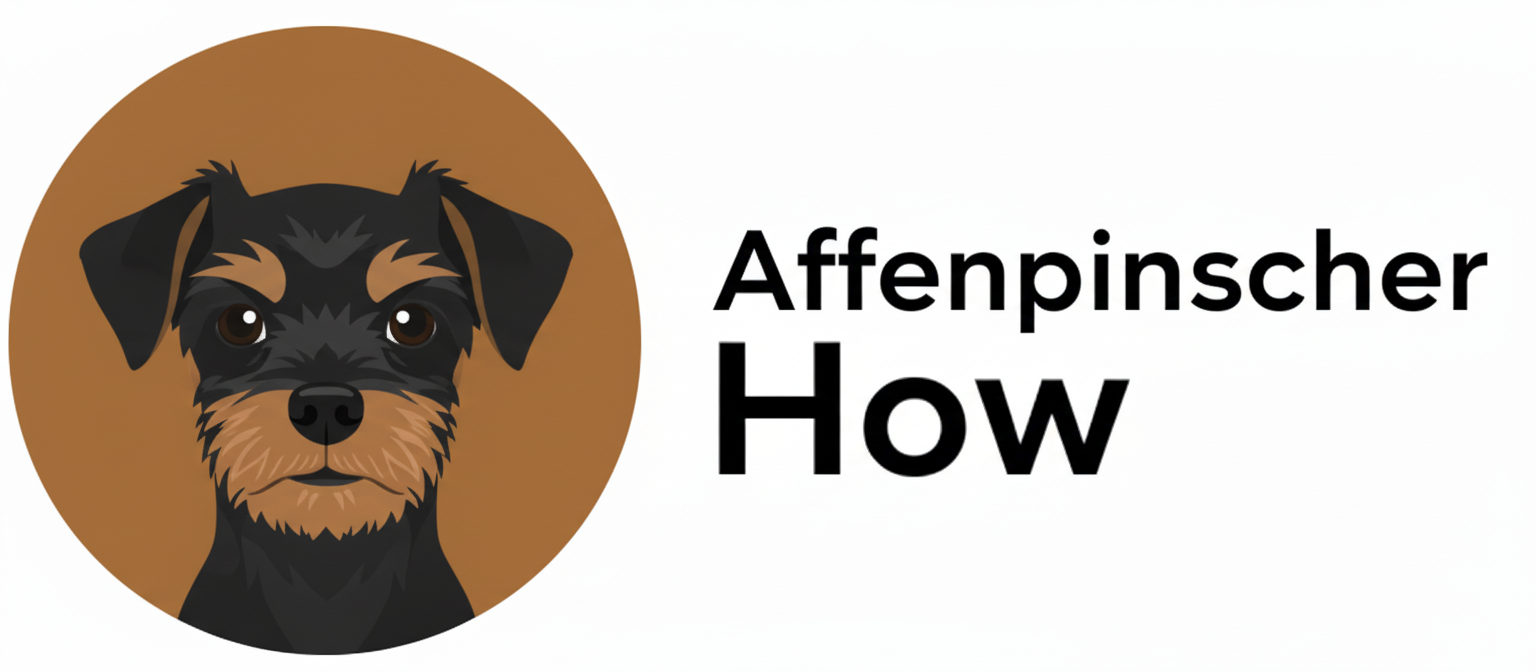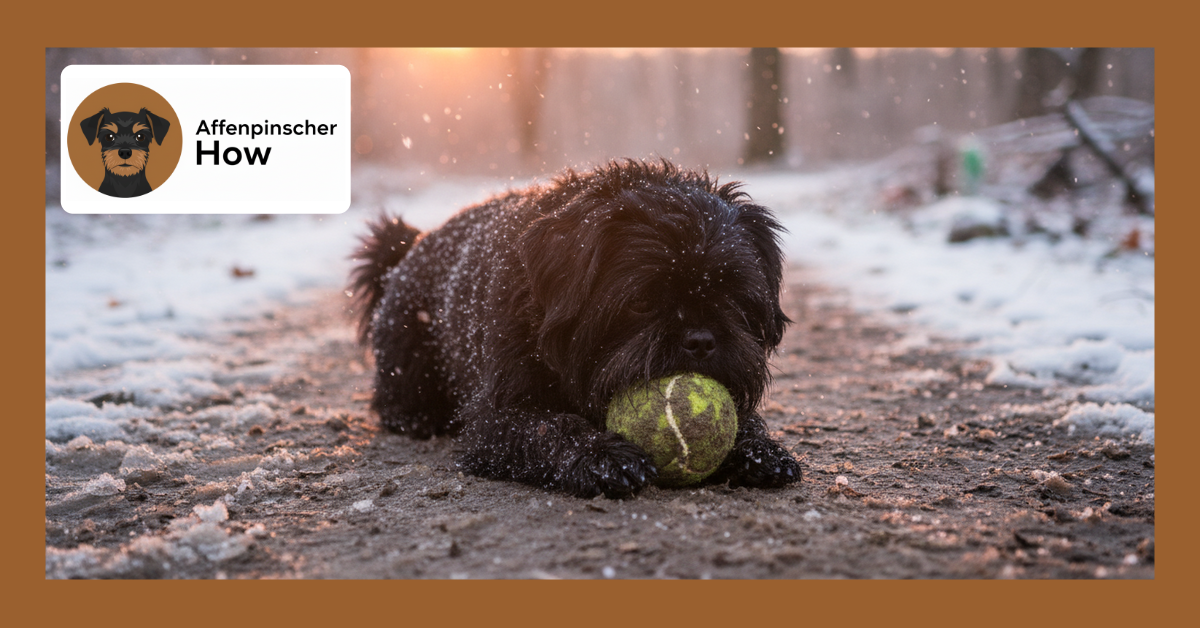Did you know that up to 80% of dogs show signs of periodontal disease by age three? For Affenpinschers, this statistic becomes even more alarming due to their unique small mouth anatomy that makes them exceptionally vulnerable to dental overcrowding and related oral health issues.
Affenpinscher dental care requires daily brushing, appropriate dental chews, regular veterinary cleanings, and dietary considerations specifically tailored to their small breed needs. Without proper oral hygiene, these charming toy dogs can suffer from painful tooth loss, gingivitis, and systemic health problems affecting their heart, kidneys, and liver.
This comprehensive guide reveals the most effective strategies to protect your Affenpinscher’s teeth and gums, drawing from the latest veterinary research and expert recommendations from the American Kennel Club and veterinary dental specialists.
Why Affenpinschers Face Unique Dental Challenges
Affenpinschers possess distinctive facial features that create specific oral health vulnerabilities. Their compact skull structure and small mouth cavity lead to tooth overcrowding, making it difficult for saliva to naturally cleanse all tooth surfaces.
This breed’s shortened muzzle also contributes to irregular tooth alignment, creating hard-to-reach spaces where plaque and tartar accumulate rapidly. Unlike larger breeds with more spacious mouths, Affenpinschers cannot benefit from natural teeth cleaning through normal chewing motions.
The consequences of neglecting these unique challenges include accelerated periodontal disease progression, premature tooth loss, and chronic pain that affects eating and overall quality of life.
Daily Affenpinscher Dental Care Routine
Establishing a consistent daily oral hygiene routine forms the foundation of effective Affenpinscher dental care. Professional veterinarians recommend implementing these practices from puppyhood to ensure long-term oral health success.
Step-by-Step Tooth Brushing Technique
- Choose the right tools: Use a finger brush or extra-soft toothbrush designed for small breeds, paired with enzymatic canine toothpaste
- Start gradually: Begin by letting your Affenpinscher taste the toothpaste and become comfortable with mouth handling
- Focus on key areas: Concentrate on the outer tooth surfaces where tartar builds up most quickly
- Use gentle circular motions: Brush for 30-60 seconds, paying special attention to the gum line
- Reward immediately: Follow each brushing session with praise and a healthy treat to create positive associations
Selecting Safe Dental Chews
Affenpinschers require specially sized dental chews that match their small jaw capacity. Avoid hard chews that could crack teeth or pose choking hazards.
- Choose chews no larger than your dog’s mouth width
- Select products with VOHC (Veterinary Oral Health Council) approval
- Monitor chewing sessions to prevent aggressive gnawing
- Replace worn-down chews before they become too small
Professional Veterinary Dental Care
While home care provides daily protection, professional veterinary dental cleanings remain essential for comprehensive Affenpinscher oral health maintenance. These procedures require anesthesia to ensure thorough cleaning below the gum line where home brushing cannot reach.
Veterinary dental specialists recommend annual professional cleanings for adult Affenpinschers, with more frequent interventions for senior dogs or those showing early signs of periodontal disease.
What to Expect During Professional Cleaning
Professional dental procedures typically include digital X-rays to assess tooth root health, ultrasonic scaling to remove tartar, polishing to smooth tooth surfaces, and fluoride treatment for additional protection.
Pre-anesthetic blood work ensures your Affenpinscher’s safety during the procedure, while modern anesthetic protocols minimize risks for small breed dogs.
Diet and Nutrition Impact on Dental Health
Recent research reveals significant connections between diet choices and oral health outcomes in Affenpinschers. The type of food you provide directly influences tartar formation, gum health, and overall dental wellness.
| Diet Type | Dental Benefits | Considerations |
|---|---|---|
| Raw Food | Natural teeth cleaning, reduced tartar buildup | Requires careful preparation, potential bacteria risk |
| High-Quality Kibble | Mild abrasive action, convenient | May contribute to tartar if high in carbohydrates |
| Wet Food | Easy to digest, good for senior dogs | Minimal dental cleaning action, faster plaque buildup |
Many veterinary nutritionists now recommend incorporating raw or fresh food elements into Affenpinscher diets, as these options naturally help reduce tartar accumulation compared to carbohydrate-heavy processed foods.
Warning Signs of Dental Problems
Early detection of dental issues allows for prompt intervention before problems become severe or painful. Affenpinscher owners should monitor for these common warning signs during daily interactions.
- Bad breath: Persistent halitosis beyond normal “doggy breath”
- Visible tartar: Yellow or brown buildup along the gum line
- Red or swollen gums: Inflammation indicating gingivitis development
- Difficulty eating: Favoring one side of the mouth or dropping food
- Pawing at face: Signs of oral discomfort or pain
- Loose or missing teeth: Advanced periodontal disease indicators
Contact your veterinarian immediately if you notice any combination of these symptoms, as early intervention significantly improves treatment outcomes.
Advanced Dental Care Products and Supplements
The pet dental care industry has developed innovative products specifically addressing small breed needs. These supplementary tools enhance daily oral hygiene routines when used consistently.
Water Additives and Enzymatic Supplements
Dental water additives containing enzymes help break down plaque-forming bacteria throughout the day. These products offer convenient oral health support for busy pet owners while providing continuous protection between brushing sessions.
Enzymatic supplements in powder or gel form can be applied directly to teeth or mixed with food to support natural oral bacteria balance.
Age-Specific Dental Care Considerations
Affenpinscher dental care needs evolve throughout their lifespan, requiring adjustments to maintain optimal oral health from puppyhood through senior years.
Puppy Stage (8 weeks – 6 months): Focus on gentle mouth handling, introduction to tooth brushing, and appropriate teething toys to establish positive dental care habits.
Adult Stage (6 months – 7 years): Implement full daily oral hygiene routines, annual professional cleanings, and monitor for early signs of periodontal disease development.
Senior Stage (7+ years): Increase monitoring frequency, consider more frequent professional cleanings, and adapt care routines for any age-related health changes affecting oral care tolerance.
Consistent Affenpinscher dental care throughout all life stages prevents painful dental disease, supports overall health, and contributes to a longer, happier life for your beloved companion. By combining daily home care with professional veterinary support and appropriate nutrition, you can ensure your Affenpinscher maintains healthy teeth and gums for years to come. For owners looking to expand their training repertoire beyond health care, Affenpinscher scent tracking training offers an excellent mental stimulation activity that can complement your overall care routine.
Frequently Asked Questions
How often should I brush my Affenpinscher’s teeth?
Brush your Affenpinscher’s teeth daily for optimal oral health. Daily brushing removes plaque before it hardens into tartar and prevents bacteria buildup that leads to periodontal disease. If daily brushing isn’t possible, aim for at least 3-4 times per week, though daily care provides the best protection for this dental-prone breed.
What type of toothpaste is safe for Affenpinschers?
Use only enzymatic toothpaste specifically formulated for dogs, never human toothpaste which contains toxic xylitol. Enzymatic dog toothpastes break down plaque naturally and come in appealing flavors like poultry or beef. Popular veterinary-recommended brands include Virbac C.E.T. and Petrodex, both designed for small breed safety.
When should my Affenpinscher have their first professional dental cleaning?
Most veterinarians recommend the first professional dental cleaning between ages 2-3 years, depending on tartar buildup and gum health. Some Affenpinschers may need earlier intervention due to their genetic predisposition to dental overcrowding. Your veterinarian will assess individual needs during routine examinations and recommend appropriate timing.
Can diet changes really improve my Affenpinscher’s dental health?
Yes, diet significantly impacts dental health in Affenpinschers. Raw and fresh diets naturally help reduce tartar buildup compared to high-carbohydrate kibble. However, dietary changes should be made gradually and with veterinary guidance to ensure nutritional balance. Some owners report noticeable improvements in breath and tartar reduction within 4-6 weeks of dietary modifications.
Are dental chews necessary if I brush my Affenpinscher’s teeth daily?
Dental chews provide additional mechanical cleaning and can supplement daily brushing, but they shouldn’t replace tooth brushing. Choose appropriately sized, VOHC-approved chews that match your Affenpinscher’s small mouth. Chews help maintain oral health between brushing sessions and provide mental stimulation, making them a valuable addition to comprehensive dental care.
What are the signs that my Affenpinscher needs immediate dental attention?
Seek immediate veterinary care if your Affenpinscher shows difficulty eating, excessive drooling, face pawing, visible loose teeth, or severe bad breath. Swollen gums, bleeding, or reluctance to have their face touched also indicate urgent dental problems. Early intervention prevents pain progression and more extensive dental procedures later.
How much do professional dental cleanings cost for Affenpinschers?
Professional dental cleanings for Affenpinschers typically cost $300-$800, depending on location and procedure complexity. Costs include anesthesia, scaling, polishing, and dental X-rays. Preventive cleanings cost less than therapeutic procedures requiring extractions. Many veterinary practices offer dental health plans or payment options to make professional care more accessible for regular maintenance.

